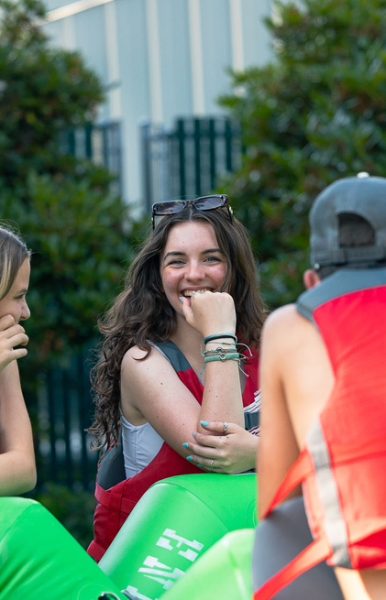
The fan-favorite show of best-selling videogame, “The Last Of Us,” recently aired its final episode of the long-awaited second season. Providing the continuation of season one, which was adapted from the 2013 hit post-apocalyptic Naughty Dog game, season two dives deeper into the lives of Ellie and Joel as they adapt to the new lifestyle provided for them at the end of the first season.
Much of the excitement for the show’s return comes from the renowned success of its first season, premiering back in 2023. The praise surrounding the show’s faithfulness to the game, outstanding acting, and ability to bring the post-apocalyptic world to life is what ultimately led to its record breaking run on HBO MAX. The show quickly became HBO’s most popular debut season with the premiere reaching 40 million viewers within two months of its airing and averaging over 30 million viewers each episode just five months after its release.
Unfortunately, the series’s popularity did not stand quite as strong once season two was released after the overall quality of the storytelling decreased as the story progressed. The difference between the two seasons can be noticed by its not-so-subtle shift in ratings, with season one averaging above an 8/10 every episode and season two receiving lots of 6-7s on its episodes, according to IMDB. Much of this can be attributed to the significant decrease in similarity to the respective games between the two seasons. Where season one covered the entirety of the first game, season two only covered the first half of the second game in almost the same amount of episodes.
Straying from the source material led to either inaccurate portrayals of scenes from the game or many of the character’s development falling flat. This change caused much of the praised storytelling from the first season to falter in the second, and likely is the largest reason that the new season has not been as well received as the first.
While the story itself may have faltered comparatively, the acting in the second season still remained a highlight throughout the show. Continuing their strong performances from season one was Bella Ramsey and Pedro Pascal together as Ellie and Joel. While their dynamic was not as prevalent in this season, the moments they had together brought to life the emotional complexities found in the game perfectly. This was especially seen in many flashback scenes where Ramsey and Pascal were able to flesh out their deep relationship through key moments in the characters life, like Ellie’s birthday trip to a nearby abandoned space museum where the two were able to bond over discovering the many different artifacts lost to time, that wasn’t covered in the first season.
While Ramsey and Pascal’s commitment to conveying their characters extremely well was one of the few reasons people stayed to watch more episodes, it was not entirely enough to bring the quality of the show back to what it was. The disappointment from fans ultimately made itself known when the season two finale only had 3.7 million viewers on its release compared to season one’s 8.2 million viewers, leaving the last installment of the series with a 55% decrease of viewers from its prior seasons counterpart. It also didn’t help that the finale left the audience with a cliffhanger that also teases the future season following the main antagonist, Abby, which is not how people were expecting the show to end.
To be fair, this perspective shift does happen in the game; however, it is the immediate switch that forces the players to continue the story as Abby that makes it work within the game. Due to many audience members not having played the game and also likely having to wait another few years before the next season comes out, the show will likely lose a lot of fans because of this ending.
While the switch will be expanded on in season three, which follows the second half of the game, not many details have been shared about specifics within the season or even when they plan on releasing it. So, for the time being, fans will have to wait and see for more information to come on the concluding season of the series.



